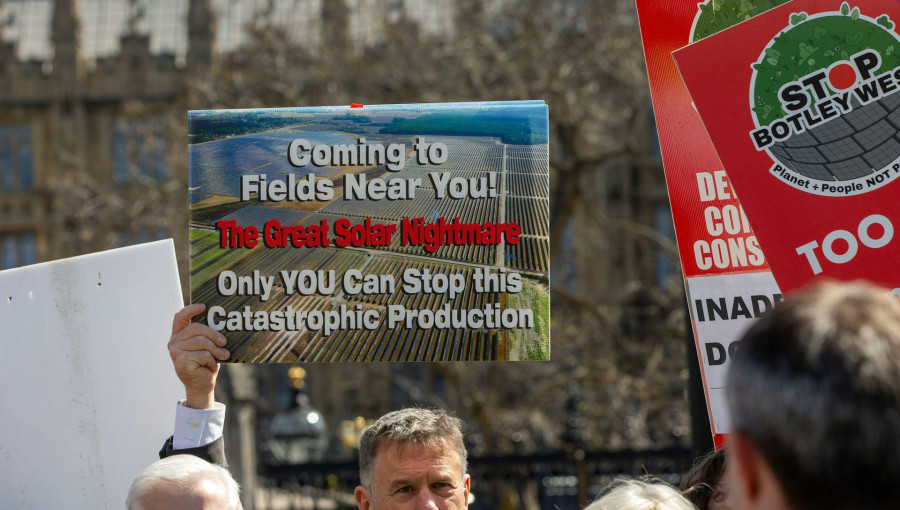A new conflict is emerging across the British countryside as plans for large-scale solar farms ignite a fierce debate, pitting green energy ambitions against the preservation of agricultural land. Political movements are capitalizing on this tension, framing the issue as a culture war to defend traditional farming from environmental policies. This narrative, however, often clashes with the reality faced by many farmers, who are increasingly concerned about the impacts of climate change and are caught in complex economic disputes between landowners and energy developers, raising urgent questions about how to achieve a fair transition to renewable energy.
In Lincolnshire, a local council leader from the Reform UK party has vowed to “lie down in front of bulldozers” to prevent the construction of what would be Britain’s largest solar farm. This stance exemplifies a broader political strategy that frames opposition to renewable energy as a defense of rural life and food production. While the party presents its position as a common-sense stand against “net zero nonsense,” critics point out that its arguments align with the interests of its fossil fuel donors. This approach attempts to transform localized opposition to solar panels into a significant political wedge issue, aiming to attract rural voters.
Joining the political fray are activist groups such as Farmers to Action, which has adopted the slogan “keep the land growing, not glowing.” The group’s leadership has openly dismissed climate change as a “scam” and collaborates with right-wing organizations that have an explicit anti-net zero agenda. However, the level of support for this movement within the broader agricultural community appears limited. At a recent protest organized by these groups, for instance, it was estimated that working farmers constituted only a small fraction of the few hundred people who attended, suggesting a disconnect between the protest leaders and the community they claim to represent.
This disconnect is underscored by research indicating that the vast majority of UK farmers are deeply concerned about climate change. A study by the Energy and Climate Intelligence Unit found that 80% of farmers worry about its impact on their livelihood, and 87% have already suffered reduced productivity due to extreme weather events like heatwaves and floods. For many in the agricultural sector, their identity is intrinsically linked to food production and land stewardship. The idea of converting productive fields into sites for solar panels can therefore conflict with a core sense of purpose, fueling the argument that “you can’t eat electricity.”
Despite this sentiment, the land requirement for solar energy is relatively modest, with government targets achievable by converting just 0.5% of UK farmland. The more immediate tension for many farmers is not a choice between food and energy, but the economic injustice embedded in the transition. In one prominent case, a tenant farming family in Yorkshire faces the loss of half their farm—approximately 45 hectares (110 acres) of prime arable land—to a solar project. They will receive no compensation, while the landowner stands to gain substantial profits from long-term leases with the energy company, which can be as high as £1,000 per acre annually.
Such scenarios highlight the risk of an unjust transition, where the shift to green energy benefits corporations and absentee landowners at the expense of local communities and tenant farmers. This can fuel legitimate local opposition, often labeled as nimbyism. Proponents of a fairer approach suggest that community-based renewable initiatives could offer a solution. Projects where income from wind or solar energy is reinvested to support local employment, services, and skills training demonstrate that green transitions can directly benefit the people most affected by them. By ensuring farmers are seen as partners in the shift to renewable energy, and that the economic benefits are shared more equitably, the divisive rhetoric of a culture war may be more easily overcome.

